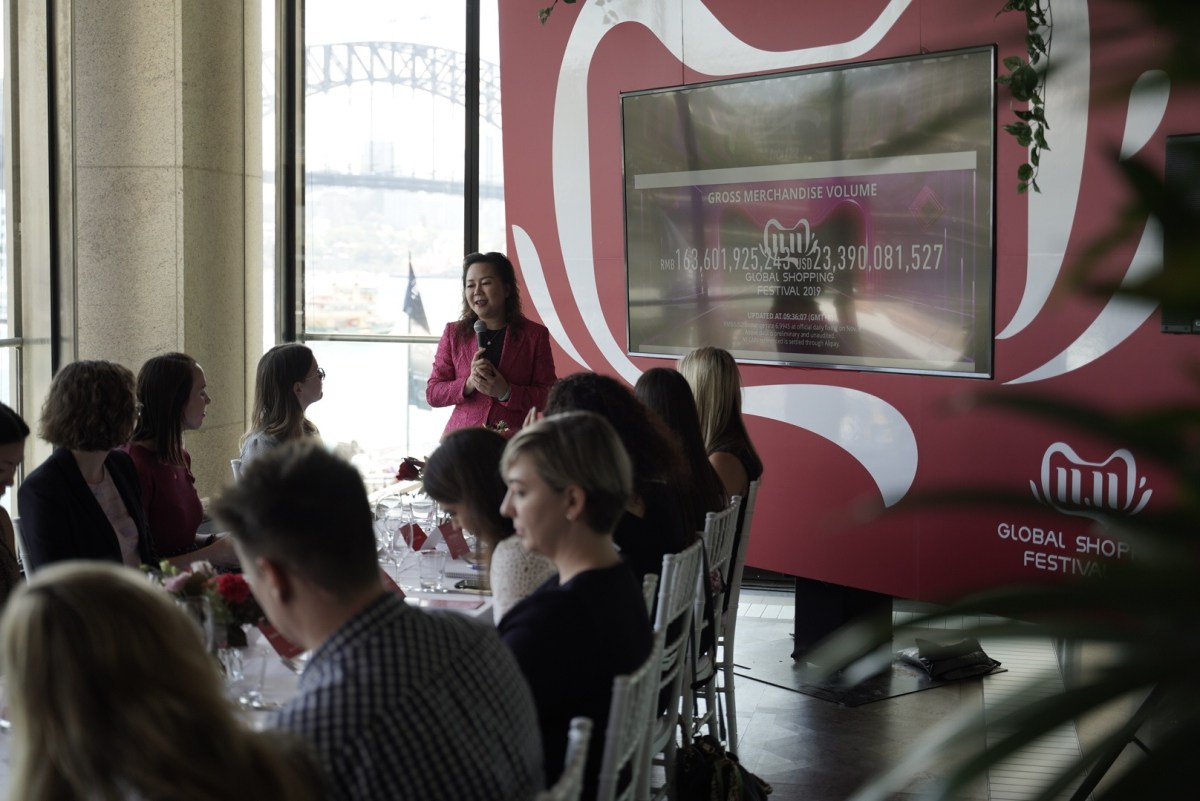An exclusive interview with Alibaba MD for Australia and New Zealand.
This year’s Alibaba 11.11 Global Shopping Festival (more commonly known as Single’s Day) surpassed sales of $US1 billion (A$1.46 billion) in the first one minute and eight seconds of the event with orders peaking at 544,000 per second. Sales then skyrocketed to $US18.32 billion (A$26.75 billion) in just the first two hours of the 24-hour event.
The shopping event was first developed in 2009 and has now become the largest shopping day in the world. This year, 100 million new consumers from across China participated in the event.
So what is behind the growth for this major sales event? According to Alibaba Australia and New Zealand managing director, Maggie Zhou, a key driver is the growing consumption power in China’s regional and rural areas.
“Chinese consumers are possibly the most active in the world when it comes to social e-commerce,” she told Retailbiz.
“During the festival, key opinion leaders (or online influencers) are engaged by brands to livestream content across the Alibaba ecosystem. On 10 November, a day before the festival, two of China’s top KOLs attracted more than 60 million viewers.
“Large scale countdown events before the festival and on November 11 also create buzz and engagement between retailers and consumers who can get access to discount coupons and pre-sale events.”
Australia makes top five best performing countries on Alibaba
But the sales event isn’t just exclusive to China with Australia ranked fourth for imports during the 11.11 shopping festival, behind Japan, the US and Korea, with sales of Australian products growing 35% year on year.
“Chinese consumers have a high demand for ‘clean and green’ products – which Australian brands excel at providing. As a result, Australia was the fourth most purchased from country with Swisse and BioIsland brands ranking in the top five most popular cross-border brands globally. In particular, Chemist Warehouse, achieved $20.85 million in just three hours and 15 minutes compared to hitting this milestone in over seven hours in 2018.”
But Zhou did explain that Australian shoppers are very different to Chinese shoppers due to the sheer scale and density of China’s population.
“Logistics is very different in China in terms of scale, convenience and speed. Chinese consumers are used to receiving products from within 30 minutes to 24 hours of purchase. Merchants and brands deploy a whole range of features, promotions and marketing activities not often seen in the Australian market to engage and motivate consumers.”
When asked about keeping up with increased demand (544,000 orders per second!), Alibaba has undertaken system and technology upgrades for its smart logistics network, Cainiao to improve efficiency and its capacity to handle over a billion packages.
“At last year’s shopping festival, Cainiao broke its own delivery-speed record shaving nearly five hours from the time required to deliver the first 100 million packages in 2017. This was made possible with advanced route-planning, matched inventory allocation and accelerating the pace of deliveries.”

